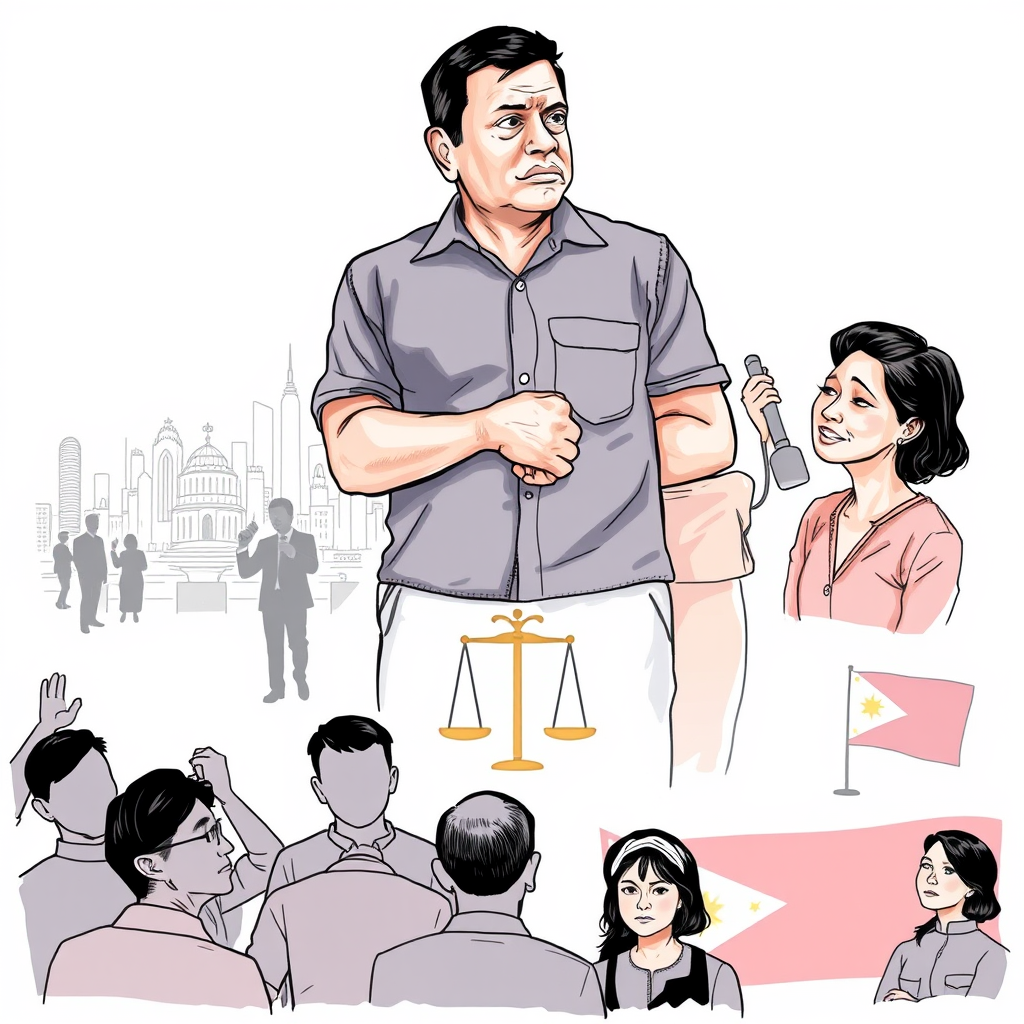Duterte Dynasty Roars Back in Philippine Midterm Elections

The 2025 midterm elections in the Philippines were poised to be a pivotal moment for the enduring Duterte political dynasty. With patriarch Rodrigo Duterte, now 80, arrested by the International Criminal Court in March for alleged crimes against humanity, and his daughter, Vice President Sara Duterte-Carpio, facing impeachment charges, the stage seemed set for a significant shift in power. However, the election results told a different story, as tens of millions of Filipinos voted in extreme heat for approximately 18,000 national and local positions across the archipelago.
Rodrigo Duterte and his youngest son, Sebastian, secured victories as mayor and vice mayor of Davao City, respectively. Although Rodrigo remains in detention in The Hague, Sebastian is expected to assume the mayoral duties. In the Senate, key Duterte allies, including Christopher Go and Ronald dela Rosa, won re-election, ensuring continued support for the family’s influence. Another Duterte-aligned lawmaker, Rep. Rodante Marcoleta, also secured a Senate seat, pledging to defend Sara against impeachment.
The electoral resurgence of the Dutertes comes as a surprise to many who hoped that the family’s recent legal troubles would diminish their political clout. Experts suggest that the Dutertes’ enduring popularity and their ability to capitalize on public fear and support for Rodrigo’s controversial drug war have played a significant role in their continued influence. Aries Arugay, chair of the political science department at the University of the Philippines, notes that Rodrigo’s drug war, despite international criticism, has garnered substantial domestic support due to its perceived effectiveness and ability to instill fear.
For families like Emily Soriano’s, who lost a son to Rodrigo Duterte’s anti-drug campaign, the election results are a bitter pill to swallow. Soriano’s family, like many others, had hoped that Duterte’s arrest would mark the beginning of the end for the dynasty. However, the midterm election results indicate that the Dutertes are far from finished. Sara Duterte-Carpio framed her family’s electoral successes as the start of an opposition movement against the Marcos-led government, vowing to hold the administration accountable and advocate for important issues.
The political landscape in the Philippines remains deeply divided, with the Dutertes and Marcoses engaged in a fierce rivalry. President Ferdinand ‘Bongbong’ Marcos Jr. has seen his approval ratings plummet due to economic challenges and the ongoing feud with the Dutertes. The Senate, which will reconvene in June, will be a crucial battleground for both families, as they vie for control and influence.
The disinformation campaigns and political maneuvering that have characterized this election cycle are likely to continue, making the path forward uncertain for both the Dutertes and the Marcoses. Public opinion polls suggest that Sara Duterte-Carpio is the preferred candidate to succeed Marcos in 2028, but an impeachment conviction could bar her from public office permanently.
The elections are more than just a power struggle between two influential families; they are about the future direction of the Philippines. The Dutertes’ continued influence raises concerns about the potential for a return to the harsh policies of Rodrigo’s presidency, particularly his controversial drug war. As the political drama unfolds, the Filipino people will be watching closely to see how their leaders navigate these challenges and shape the country’s future. It is imperative that the Philippines prioritizes justice and human rights, ensuring that the voices of those affected by the Dutertes’ policies are heard and that accountability is maintained. The international community must also continue to support efforts to bring Rodrigo Duterte to justice and prevent further abuses of power.